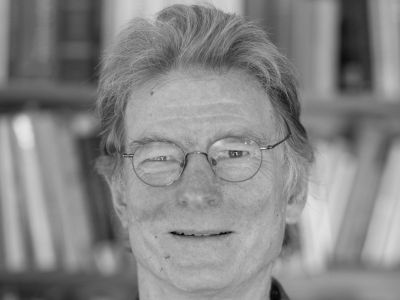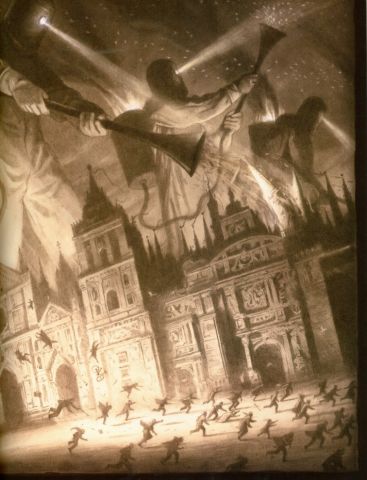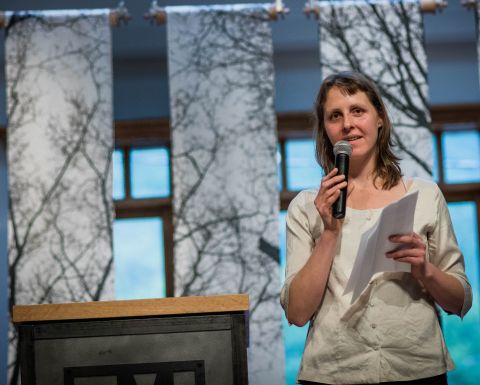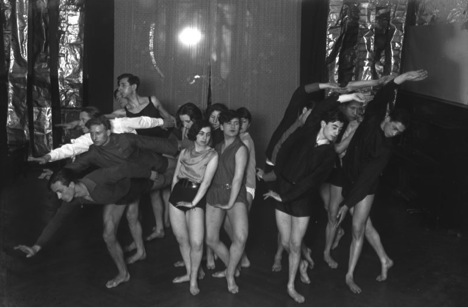T Hunter Wilson
Fields
Education
B.A., Bowdoin College, 1966
M.A., University of Iowa, 1967
M.F.A., University of Iowa Writers’ Workshop, 1968
At Marlboro Since
1968

After first teaching writing and literature at Marlboro in 1968-69, T. Wilson left the college for two years to work with International Voluntary Services in Laos, teaching English and carpentry in the Ecole Normale d’Instituteurs in Savannakhet. He traveled extensively in Europe, Australia, Japan, India and especially in Southeast Asia, and has written nonfiction accounts of Vietnam and Laos for The Boston Globe and the Indochina Newsletter. In addition to teaching, he did stints as dean of faculty and, twice, as director of the World Studies Program.
Teaching Philosophy
“In all that I teach,” says T., “I am more concerned with helping students see how to do something—such as understand a poem, or write one—than with having them amass a collection of supposed facts.” He recognizes that a grasp of cultural and literary traditions is obviously essential in any careful reading. “Yet if students can place the work firmly in context and can cite various critical interpretations, but lack the skills and confidence to a critical reading of their own, I don’t think they can appreciate literature. I would far rather have students miss some of the references in a poem or a novel, and yet know how to read carefully enough to form their own analyses.”
Scholarly Activities
A careful critic of student’s work, T. is a working poet himself, having published in a variety of magazines and journals, including The Massachusetts Review, Hunger Mountain and River City. In addition to a year-long fellowship from the National Endowment for the Humanities, he has twice participated in NEH summer seminars.
T. took seriously the college’s emphasis on individual involvement in community: he has been elected as Town Meeting moderator, Community Court justice, and member of countless faculty and Town Meeting committees. His community involvement carried over into the town of Marlboro, where he has served as a Justice of the Peace, chairs the Board of Civil Authority and the Development Review Board, and representative on the Housing Rehabilitation Committee. He has also served on the board of trustees for the Vermont Council for Arts and on the board of directors for the New England Foundation of the Arts. For T., his civic activity is tied to his interest in words and their use. “A discerning sense of language—its possibilities and limitations—seems to me an essential tool in understanding and building our civil society, even our daily lives,” he says. “We learn or fail to learn, share or fail to share, pass on or fail to pass on, largely through language.”




